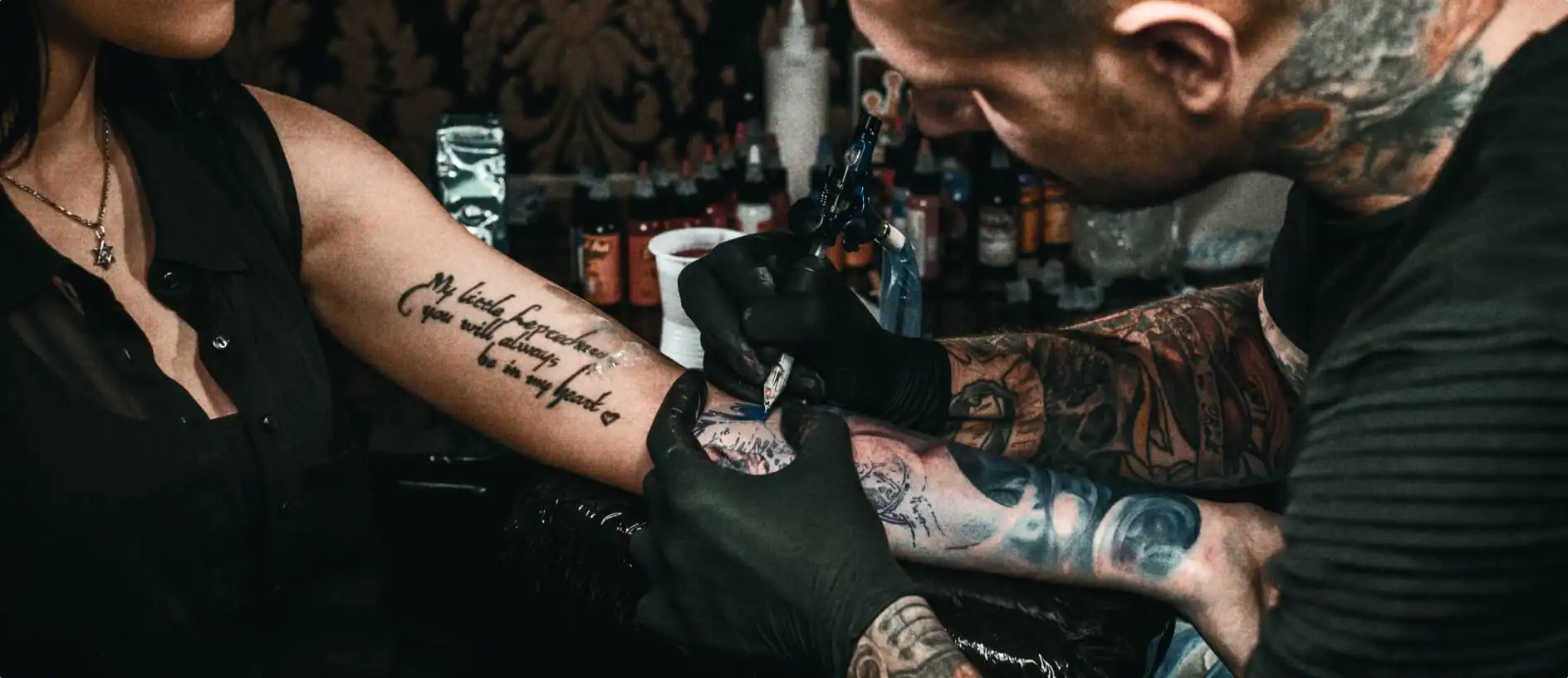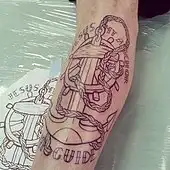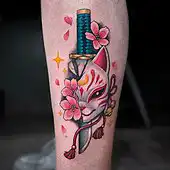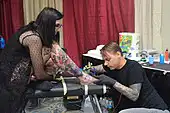
801 Dixon blvd ste 1151
cocoa, fl 32922Moon and Ash Tattoo CoMilk District Tattoo Shop
321-806-4244
Tattoo near me
Rorschach Tattoo Shop and Piercing Studio in Cocoa, FL, stands out as an exceptional choice for those seeking tattoos or piercings. The studio boasts unbeatable prices and a very friendly environment, where clients can even choose their preferred music during their visit. The staff, including Ava at the front desk, are known for their efficiency and welcoming nature. Nicki, one of the artists, receives high praise for her strong and crisp linework, as well as her ability to translate clients' visions into stunning tattoos. The studio operates every day from 10 AM to 10 PM, offering convenience and flexibility for scheduling appointments. Overall, Rorschach Tattoo Shop and Piercing Studio is highly rated for its artistic talent, customer service, and great atmosphere, making it a top destination for tattoos and piercings in Cocoa, FL.

When searching for Tattoo near me look no further than Rorschach Tattoo and Piercing
"The Intriguing Culture of Tattoo Studios: More Than Just Ink"
Tattoo studios are more than just places where art meets skin; they are vibrant hubs of culture, creativity, and community. In this article, we explore the unique culture of tattoo studios, shedding light on why these spaces are about much more than just getting inked.
A Haven of Artistic Expression At the core of every tattoo studio is artistic expression. Studios are sanctuaries for artists and clients alike, where ideas transform into visual masterpieces. Each studio has its unique vibe, often reflective of the artists' styles and personalities, making every visit a new experience.
Community and Belonging Tattoo studios often foster a sense of community. They are gathering spots for people from diverse backgrounds, united by their love for ink. Regular clients and artists develop bonds over time, creating a sense of belonging and camaraderie that extends beyond the studio walls.
A Reflection of History and Traditions Tattoo studios are steeped in history and traditions, with many upholding the rich heritage of tattooing. From ancient tribal practices to modern techniques, studios serve as educational spaces where clients can learn about the cultural significance of different styles and designs.
Inclusivity and Diversity The modern tattoo studio culture embraces inclusivity and diversity. Studios are becoming increasingly open to people of all backgrounds, gender identities, and walks of life, promoting an environment of acceptance and respect.
Innovation and Trends Tattoo studios are also places of innovation, where artists experiment with new techniques, tools, and trends. They are on the forefront of evolving tattoo styles, from hyper-realistic portraits to abstract body art, ensuring that the industry continues to grow and diversify.
Health and Safety Practices The culture of tattoo studios today places a strong emphasis on health and safety. Sterile environments, proper equipment sanitization, and adherence to regulations ensure clients' safety, reflecting the industry’s commitment to professional and ethical standards.
Personal Growth and Transformation For many, tattoo studios are spaces of personal growth and transformation. Getting inked can be a therapeutic process, marking significant life events, personal journeys, or the expression of individual identity.
Conclusion The culture of tattoo studios is as intricate and diverse as the tattoos they create. They are not just service providers but are important cultural spaces that celebrate artistic expression, foster community, uphold traditions, and promote personal growth. In today’s world, tattoo studios symbolize a melting pot of creativity and cultural exchange, making them integral parts of the global art community.
Note the use of nitrile glovesduring the process, this to avoid infections while perforating the skin

A sailor's forearm tattooed with a rope-and-anchor drawing, against the original sketch of the design; see sailor tattoos

An example of a tattoo design

Application of a tattoo to a woman's foot
A tattoo is a form of body modification made by inserting tattoo ink, dyes, and/or pigments, either indelible or temporary, into the dermislayer of the skin to form a design. Tattoo artists create these designs using several tattooing processes and techniques, including hand-tapped traditional tattoos and modern tattoo machines. The history of tattooing goes back to Neolithic times, practiced across the globe by many cultures, and the symbolism and impact of tattoos varies in different places and cultures.
Tattoos may be decorative (with no specific meaning), symbolic (with a specific meaning to the wearer), or pictorial (a depiction of a specific person or item). Many tattoos serve as rites of passage, marks of status and rank, symbols of religious and spiritual devotion, decorations for bravery, marks of fertility, pledges of love, amulets and talismans, protection, and as punishment, like the marks of outcasts, slaves and convicts. Extensive decorative tattooing has also been part of the work of performance artists such as tattooed ladies.
Today, people choose to be tattooed for artistic, cosmetic, sentimental/memorial, religious, and spiritual reasons, and family and to symbolize their belonging to or identification with particular groups, including criminal gangs (see criminal tattoos) or a particular ethnic group or law-abiding subculture. Tattoos may show how a person feels about a relative (commonly a parent or child) or about an unrelated person.[1]
Tattoos can also be used for functional purposes, such as identification, permanent makeup, and medical purposes